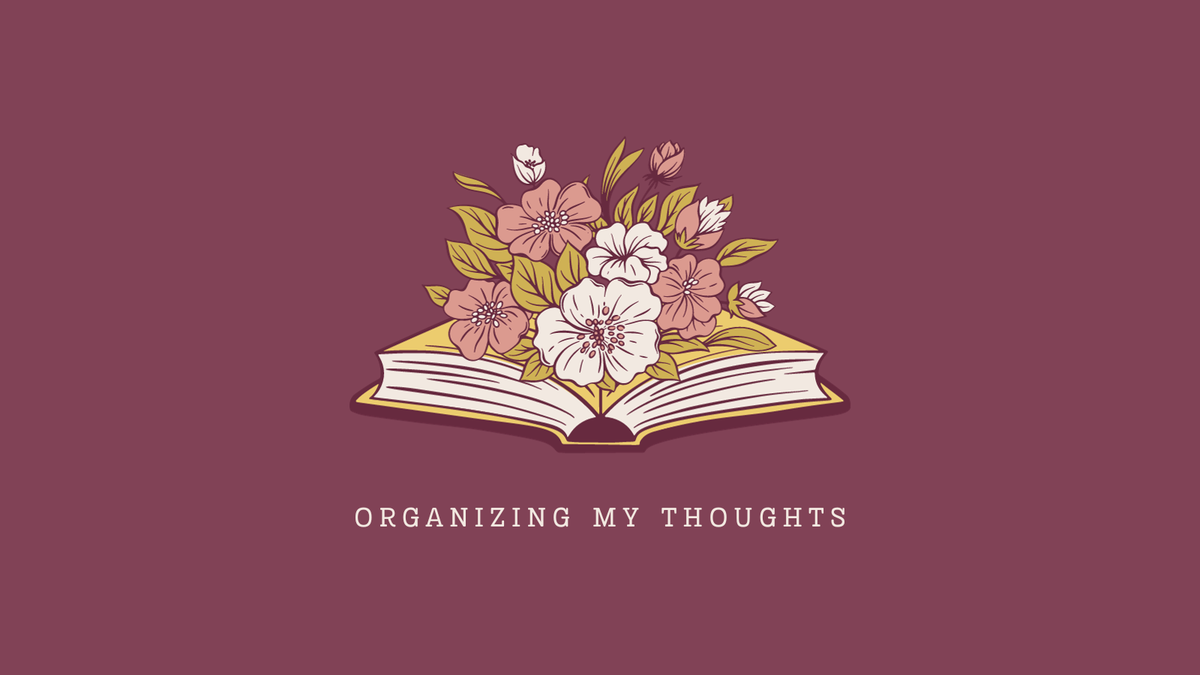Must-Reads and Some Thoughts on Living on the Edge of Reality
"Will we all be sitting ducks, siloed behind our screens?"


Greetings friends,
You know the drill. Must-reads at the top, final thoughts at the bottom.
Must-Reads
- Collapse of Critical Atlantic Current is No Longer Low-Likelihood, Study Finds by Damian Carrington. “The collapse of a critical Atlantic current can no longer be considered a low-likelihood event, a study has concluded, making deep cuts to fossil fuel emissions even more urgent to avoid the catastrophic impact.”
- Mafia State Survival: Your Questions Answered by Sarah Kendzior. “It’s never too late if you can imagine a way out. That’s one reason I strongly oppose AI: it’s an assault on the imagination, and we need to be more imaginative than ever.”
- Israel Announces Total Siege of Gaza City, Declaring Entire Area “Combat Zone” by Sharon Zhang. “Israel announced on Friday that it has begun the “initial stages” of its siege on Gaza City, declaring the capital city a “dangerous combat zone” and ending its daytime pauses for the supposed purpose of allowing the passage of humanitarian aid, despite a famine declaration across the area last week.”
- DC Grand Jury Refuses to Indict Folk Hero Who Tossed Sandwich at CBP Officer by Elizabeth Weill-Greenberg. “‘Fuck you! You fucking facists!’ he yelled before throwing the sandwich, according to the complaint. ‘Why are you here? I don’t want you in my city!’”
- Millions of People Depend on the Great Lakes’ Water Supply. Trump Decimated the Lab Protecting It by Anna Clark. “With the peak summer season just around the corner, Great Lakes scientists are concerned that they have lost the ability to protect the public from toxic algal blooms, which can kill animals and sicken people.”
- Deforestation Has Killed Half a Million People in Past 20 Years, Study Finds by Jonathan Watts. “The researchers estimated that warming due to deforestation accounted for 28,330 annual deaths over that 20-year period.”
- OpenAI Says It's Scanning Users' ChatGPT Conversations and Reporting Content to the Police by Noor Al-Sibai. “In a new blog post admitting certain failures amid its users' mental health crises, OpenAI also quietly disclosed that it's now scanning users' messages for certain types of harmful content, escalating particularly worrying content to human staff for review — and, in some cases, reporting it to the cops.”
- First AI Psychosis Case Ends in Murder-Suicide by Maggie Harrison Dupré. “[ChatGPT] earned his trust, validated his paranoia, and egged on his worsening delusions — in short, creating a space for a deeply troubled person to engage in a deeply destructive form of world-building. And now, he and his mother both are dead.”
- If Trump Dies by Jared Yates Sexton. “Vance wouldn’t need to be popular. Vance wouldn’t need to be adored. Vance would only need to have the keys to the machine and the backing of his billionaire benefactors.”
- Michigan AG Warns UM Hospitals Not To Capitulate Over Trump's Trans Ban, Calls Decision Likely "Illegal" by Erin Reed. “Michigan’s attorney general, Dana Nessel, issued a sharp warning to University of Michigan Health—the latest hospital to drop care for youth—that caving to Trump may itself violate state law, and that her office is prepared to use every option to bring the institution back into compliance.”
ICYMI
This week, I shared a worksheet that can help us map networks of support and protection as some U.S. prepare for Trump’s threatened federal occupations. If you live in Chicago, or another city that Trump is threatening to occupy—like Baltimore or New York City—I hope you will find this resource useful.
Final Thoughts
Last week I shared a story about how I had sprained my ankle while traversing an uneven surface in the dark. Relying on my own amateur expertise, I was convinced nothing was broken. I was far from home and seeing a doctor immediately didn’t seem feasible. So, my friends wrapped my bruised foot, and I flew home Monday as planned. That same day, I got an X-ray that revealed two small fractures. Now, I am hobbling around in a CAM boot, waiting to see a specialist about my injuries. Between my shoulder, spine, knee, and ankle problems, I feel like my body is falling apart—and now my activity level is restricted, which is also challenging. I rely on long walks and stints on a recumbent bike to enliven and maintain this inflamed vessel I call a body.
It was in this condition that I spent the last week focused on creating and sharing the resource above. I have no regrets. The local gathering where we shared and explained the resource was so generative. And yet, as soon as the event was over, and the stress hormones that had powered me through it began to fade, I knew I would need a break.
I wanted to attend this week’s Labor Day march in Chicago. I knew I couldn’t march, but I thought I could stand around at the rally for a while at least, and hear some of the speakers.
I can’t do that.
I may not even make it to the emotional and spiritual support group for activists that I co-facilitate today.
I almost opted out of writing a must-reads list for you all this week. But I had been keeping tabs open in my browser for this purpose, and I wanted to highlight some of the articles I’ve been reading. In particular, I didn’t want the story about a 56-year-old man named Stein-Erik Soelberg to get lost in the noise as we all obsessed over Schrödinger's president.
Soelberg was a longtime tech worker with a history of alcoholism and emotional instability. He was living with his mother— 83-year-old Suzanne Eberson Adams—during a period of unemployment and emotional upheaval following his 2018 divorce. A few weeks ago, Soelberg murdered his mother and killed himself after ChatGPT repeatedly indulged his delusions of conspiracy and betrayal. The chatbot, which Soelberg called “Bobby,” also affirmed Soelberg’s beliefs that the bot had become sentient, and would join him in the afterlife.
It’s clear that Soelberg had been unwell for some time. Prior incidents of self harm and suicidality had been documented, in addition to problematic behaviors related to his drinking. But here’s the thing: the world is full of people who are struggling. And as conditions deteriorate, more and more of us will struggle emotionally.
Have you ever had a moment when you were on the brink of saying or doing something foolish, or even dangerous, until some flicker of reality snapped you out of it? A reminder of your values, the grounding words of a friend, or a flash of empathy for other people — sometimes, we get pulled back from the edge of life-altering mistakes because the right stimulus interrupts our worst or most confused impulses. In that instance, I am talking about one impulse, one errant drive, being derailed by a single piece of input. What if, in such moments, you were only affirmed and encouraged in your impulses? What if your worst thoughts always had a willing accomplice?
This is something I became mindful of upon observing patterns on social media years ago, as my Twitter account became more popular. I met a lot of great people on Twitter, but I also observed that some accounts with large followings attracted certain sycophantic personalities—people with parasocial attachments to popular posters who would always affirm their faves, no matter how wrong or ridiculous their statements may have been. When some popular figures—and I don’t mean celebrities, but people with large followings who mostly posted about social justice—posted about their grievances, which were often vague, personal, and petty, they would be flooded with affirming replies. Some posters ignored the sycophantic responses, likely viewing them as noise. Others were clearly affirmed by so much easy agreement, and became more deeply convinced of their positions. According to the sycophants, these posters were always victims, and never perpetrators. All of their impulses were correct, including their desires to lash out at others. Their pettiness was celebrated—as pettiness too often is in a voyeuristic culture that treats other people’s lives as vicarious entertainment.
As I watched these dynamics play out, I realized two things. The first was that I needed to put my guard up, and not allow such approvals to shape me or inform my behavior. The second was that if I had been flooded with that kind of attention when I was a teenager or young adult, struggling with depression, anxiety, and PTSD, I would have been fucked. I am not saying that all young people or people struggling with mental health issues lack the capacity to overcome such influences. I am saying that I would not have had that capacity. I would have been swept up by the sycophancy, because I was in so much pain, and so desperately needed to feel seen and understood. When I was a young adult, I was simultaneously full of conviction and self-doubt. I was aching to be told what I wanted to hear. I was profoundly vulnerable, as so many people are.
AI is the next generation of techno sycophancy. The landscape has evolved from one where hordes of strangers might tell you all the wrong things—because they want to affirm you, or because it’s simply more entertaining if you are petty, aggressive, or reckless—to a single product we are constantly told is the voice of the future—with OpenAI claiming its chatbot has "PhD-level" abilities. Of course, nowadays, you might also encounter hordes of manufactured voices on social media—clamoring about nonsense, calling you toward conflict, or attempting to confuse fact and fiction, because someone launched a bot army toward those ends.
The chatbot is a product that aides in research (while potentially sharing made up information and citations), provides companionship (while potentially lying about being sentient), and offers support when you’re in a crisis (it assured Soelberg that he was not being paranoid and that his mother, and perhaps UberEats, might be part of a conspiracy to kill him).
For many people who are experiencing an emotional spiral, an interruption of our errant thought process is needed. I can remember, years ago, getting deeply upset about the way an interpersonal situation was playing out, until one of my friends calmly reframed the situation. After hearing her summary of what was and wasn’t happening, my emotions de-escalated. There wasn’t really anything to be angry about, and there was no point in being upset at anyone. While there was hurt, there was no malevolence. No one was trying to be cruel or to cause anyone else harm. Some things just hadn’t been expressed as clearly or as quickly as they should have been, which led to hurt and frustration. After talking to my friend, I quickly got over it.
What if I’d instead had that conversation with ChatGPT? Or worse, what if I were a person teetering on the edge of a psychotic break, and believed the misunderstanding and hurt I was experiencing was the product of a plot against me? As Dr. Keith Sakata, a psychiatrist at the University of California, San Francisco told the Wall Street Journal, “Psychosis thrives when reality stops pushing back, and AI can really just soften that wall.”
Sakata has treated a dozen patients over the last year whose mental decline was tied to AI chatbot use.
Now, I want us to think about the statement, “Psychosis thrives when reality stops pushing back.”
Reality itself is being compromised, by design, with a firehose of misinformation on X, and elsewhere, and with an endless deluge of AI slop. The White House routinely disseminates lies and seeks to invalidate information that contradicts its narratives. Fascism thrives by debasing facts, and by making the truth indistinguishable from its lies. Amid so much manufactured uncertainty, our biases, allegiances and preferences can become more impenetrable, because they may feel like the only “truth” we have.
In times like these, the voices that can potentially complicate or interrupt our understanding of what’s happening, and what we ought to do, have never been so important. So, where will we turn? To each other, or to the environmentally ravenous and ruinous machines that are making billionaires richer, while pumping ever more bullshit into the infosphere?
I have called AI chatbots the end game of capitalist alienation, and I become more convinced of this assessment with each passing week. In a time of collapse, people become more vulnerable to cults and charlatans. We become desperate for answers and assurances. What we need, amid so much tumult and uncertainty, is to turn to each other—something many of us lack the skills or will to do, amid so much alienation and disappointment. What we are being offered is an assistant, a friend, a helper who is always there for us, always ready to replace human connection.
Some people get energy from interacting with other people. Such people are generally referred to as extroverts. But human relationships offer both breaks and gas. When we connect with even one other person about whether what we are doing and thinking makes sense, we just might encounter a guardrail, if we are veering too close to the edge. If we are in community with a number of people who are genuinely invested in our well-being, we will encounter even more breaks and guardrails. At a time of sprawling catastrophe, when reality is being willfully polluted and confused, and violent systems are being inflated with the utmost depravity, we need people to anchor us.
We need to be anchored to each other.
The more we fail in this task, the more we will see people drift away into spheres of delusion, fantasy and paranoia—kept company in those worlds by the artificial voices they have learned to trust.
As federal troops occupy our cities, as our neighbors are snatched, and our freedoms are stripped away, will we all be sitting ducks, siloed behind our screens?
I say this now with the utmost urgency: Find your people. Turn to people. And please, don’t leave anyone behind.
Much love,
Kelly
Organizing My Thoughts is a reader-supported newsletter. If you appreciate my work, please consider becoming a free or paid subscriber today. There are no paywalls for the essays, reports, interviews, and excerpts published here. However, I could not do this work without the support of readers like you, so if you are able to contribute financially, I would greatly appreciate your help.




